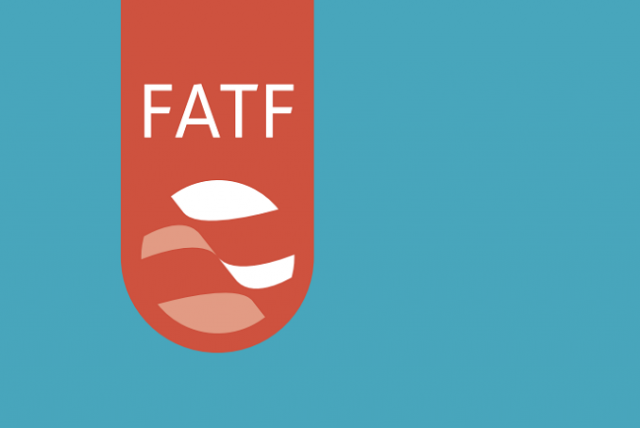Pakistan largely addresses FATF terms
SECP has imposed roughly Rs22 million worth of penalties in past one year on violations

PHOTO: FATF
The government adds it has largely addressed 22 points related to curbing money laundering and terror financing.
The achievements have been claimed in a progress report, sent to the Joint Group of the FATF, which is scheduled to meet in Beijing on January 21 and 22.
Pakistan will be judged by an FATF plenary next month on the basis of the Joint Group’s report. India and China jointly co-chair the meeting.
Pakistan has sought the global body’s support to declare at least 22 points largely addressed during the review meetings, said sources who have worked on the progress report.
In background discussions, Pakistani authorities have claimed that they showed full compliance on five action points and are largely compliant on another 17.
They said the progress should be enough for the FATF to strike the country’s name off its grey list.
The Pakistani authorities have taken a position in the progress report that the country will keep submitting progress reports on the remaining five action points related to measures against cash couriers, terrorism financing risk assessments and amendments in laws.
In February 2018, the FATF had found serious deficiencies in the country’s anti-money laundering and combating financing of terrorism regimes.
It placed Pakistan on grey list with effect from June 2018 and gave final warning to Pakistan in October last year to show full compliance by February 2020.
In October, Pakistan was found largely compliant against five targets, which the authorities now say have reached to 17.
In October, the FATF had declared another five action points related to convictions, targeted financial sanctions as non-compliant, whose status, as per Pakistani authorities’ claim, is now partially compliant.
Only those technical issues remain unaddressed where legal amendments are needed or actions need more time, according to the sources.
The amendments have been proposed and the bills are at various stages of approval.
Essentially, Pakistan has made movement towards showing effectiveness, but at this stage complete compliance cannot be shown on all 27 action points, they added.
Translation of investigations into convictions, dissuasive penalties and sanctions and understanding of transnational outward risks are some of the pending areas that require further work.
The sources said that the Foreign Office was already working to convince like-minded countries to strike Pakistan’s name off the grey list on the basis of significant progress on the 22 points.
However, for exiting the grey list, Pakistan needs to show full compliance on all the action points by Feb 2020, according to the FATF statement issued in October last year.
Pakistan is required to amend five laws to show full compliance with the FATF action plan. They are: the Anti-Money Laundering Act 2010, Foreign Exchange Regulations Act 1947, the Mutual Legal Assistance Act, the United Nations Security Council Act 1948 and Anti-Terrorism Act 1997.
The sources said the UNSC Act is proposed to be brought in line with the ATA 1997. It is being proposed to increase the imprisonment time and penalties in terror financing related cases.
The Securities and Exchange Commission of Pakistan has showed compliance on almost all the targets. Its targets were largely related to creating awareness about money laundering and terror financing, risk assessments of the companies, non-profit organisations and giving warnings and imposing penalties on violations.
The SECP has imposed roughly Rs22 million worth of penalties in past one year on violations. However, it has not found any case related to terror financing, said the sources.
The major outstanding areas remain action against cash curious by the Federal Board of Revenue and Terrorism Financing Risk Assessment by the law enforcement agencies.



















COMMENTS
Comments are moderated and generally will be posted if they are on-topic and not abusive.
For more information, please see our Comments FAQ